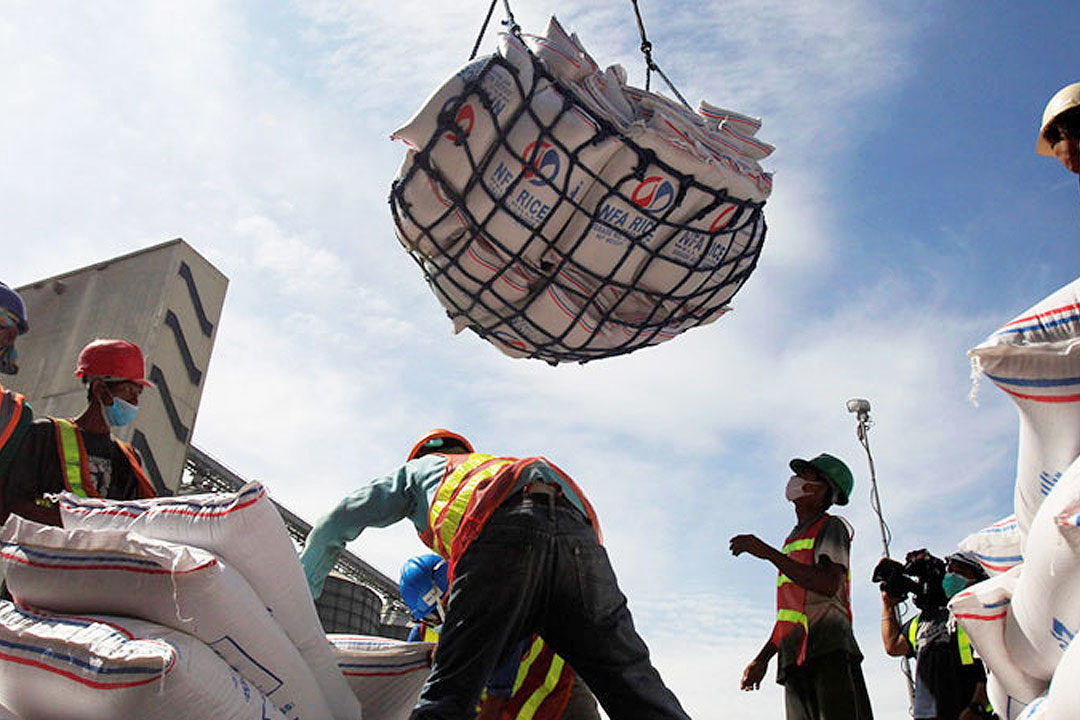Rice tariffication law amendment effort seen best focused on RCEF

AMENDMENTS to the law that liberalized rice imports should focus on the system of allocating the funds generated by import tariffs to modernize the industry, a legislator said.
The Rice Competitiveness Enhancement Fund (RCEF) is expiring in 2025 and any amendments need to address how the funds are distributed, Albay Rep. Jose Maria Clemente S. Salceda told BusinessWorld via Viber.
“The most obvious change that needs to be done with the Rice Tariffication Law is the allocation of the RCEF,” he said. “The fund is expiring in 2025, so we need to anticipate whether to extend it or to reallocate it to better suit the needs of farmers and consumers.”
The RCEF receives P10 billion a year from rice tariffs. It is a component of the Rice Tariffication Law of 2019, which privatized rice importing but required importers to pay a tariff of 35% on Southeast Asian grain, though this geographical restrictions were later eased to include rice from all sources.
The Federation of Free Farmers (FFF) described RCEF’s fund disbursement as rigid, and called for flexibility to better address the needs of rice farmers.
“The current RCEF distribution scheme prohibits the fund’s use outside the prescribed menu of services,” according to an FFF paper outlining proposed amendments to the law said.
“It also disallows the realignment of funds across the four major program components, even if priorities change… over time,” it added.
Proceeds of the P10-billion rice fund must go to mechanization (50%), rice seed development (30%), credit assistance (10%), and farmer training (10%).
The FFF said “a certain percentage of RCEF, say 25%, could be reserved for other critical interventions.”
Amendments to the Rice Tariffication Law should also look to restoring the National Food Authority’s (NFA) regulatory powers, the FFF said.
The law removed the monitoring, supervisory, and regulatory functions of the NFA, a move seen by FFF as detrimental to the rice industry. “This prevents (the) government from anticipating supply shortages or gluts and controlling erratic movements in prices.”
“Reinstating these powers to the NFA will enable (the) government to detect and apprehend market manipulators and discourage hoarding, price fixing, and collusion among traders,” the FFF said.
Speaker and Leyte Rep. Ferdinand Martin G. Romualdez last week directed the House of Representatives to prioritize amending the law, including the proposal reinstating NFA’s regulatory power.
“The NFA clearly has had a role in making cheaper rice available during past rice trade crises,” Mr. Salceda said.
The NFA should be allowed to build up rice reserves by directly dealing with producers, the FFF said. “In these instances, the (NFA) should be allowed to secure any buffer stock shortfall through bidding or other supply arrangements, but only with domestic farmers and their accredited organizations,” FFF said. — Kenneth Christiane L. Basilio



